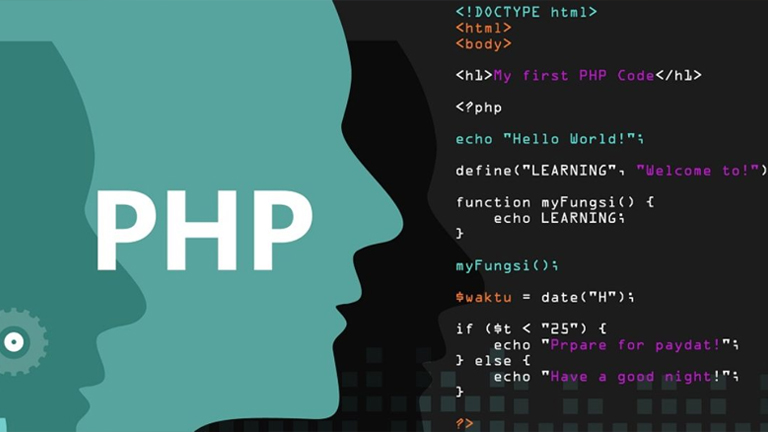PHP, a powerful and widely used server-side scripting language, has been a cornerstone of web development for decades. From powering small websites to driving dynamic content on large-scale platforms like Facebook and WordPress, PHP remains one of the most versatile and sought-after programming languages in the tech industry. Our PHP language course is crafted to transform you into a skilled backend developer capable of creating robust, secure, and scalable web applications. Whether you’re a complete beginner or a professional looking to enhance your backend development skills, this course is designed to help you succeed.

Why Learn PHP?
PHP continues to be the backbone of millions of websites and web applications. Here’s why learning PHP is a valuable skill:
- Widely Used: Over 75% of websites globally, including WordPress, Joomla, and Drupal, are powered by PHP.
- Beginner-Friendly: Its simple syntax and ease of use make it perfect for new programmers.
- Fast Development: PHP frameworks like Laravel and CodeIgniter streamline development, saving time and effort.
- High Demand: PHP developers are in high demand across industries for roles in backend development, CMS customization, and e-commerce.
- Community Support: A vast, active community provides extensive resources, tools, and libraries.
What You’ll Learn?
Our PHP course offers a structured, hands-on approach, covering everything from the basics to advanced development techniques.
1. Introduction to PHP
- What is PHP, and why is it essential for web development?
- Setting up your local development environment with XAMPP or WAMP.
- Writing your first PHP script.
2. Core PHP Concepts
- Variables, data types, and operators.
- Control structures: loops, conditionals, and switch statements.
- Functions and arrays.
3. Working with Forms and User Input
- Capturing and validating user inputs.
- Handling GET and POST methods.
- Securing data to prevent SQL injection and cross-site scripting (XSS).
4. Database Integration
- Connecting PHP with MySQL databases.
- Performing CRUD (Create, Read, Update, Delete) operations.
- Using prepared statements for secure database queries.
5. Object-Oriented Programming (OOP) in PHP
- Classes, objects, and constructors.
- Inheritance, polymorphism, and encapsulation.
- Namespaces and autoloading.
6. PHP Frameworks
- Introduction to popular frameworks like Laravel and CodeIgniter.
- Building web applications with MVC architecture.
- Routing, middleware, and templating.
7. Advanced Topics
- Working with APIs and integrating third-party services.
- File handling and image uploads.
- Implementing authentication and session management.
8. Deploying PHP Applications
- Hosting your PHP project on platforms like cPanel, AWS, or Heroku.
- Debugging and maintaining your applications.
